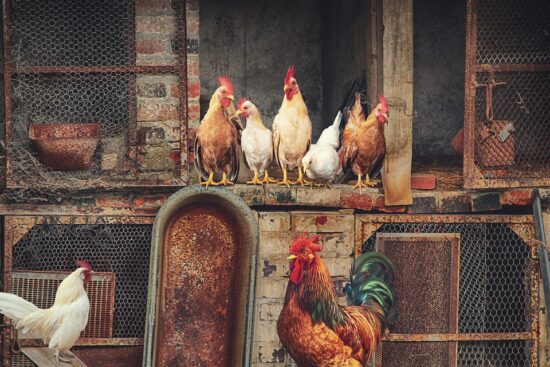In Zimbabwe, Poultry Farmers Face a New Foe: Antibiotic Resistance
Many unemployed people in the country, particularly women, have also ventured into poultry farming as a source of income. At the same time, frequent and severe droughts are forcing many small-scale farmers to abandon crop farming for poultry farming. Rain-fed crop farming in Zimbabwe is becoming unsustainable due to climate change droughts. Outside many houses across the country—both in urban and rural areas—broilers and layers could be seen crammed in small and unhygienic fowl-runs.
Every week, small-scale poultry farmers in the eastern parts of Zimbabwe crowd to buy day-old chicks—mostly broilers—at a small veterinary outlet in the city of Mutare. And according to the Zimbabwe government’s second crop and livestock assessment report for 2021, small-scale broiler production, though affected by the COVID-19 pandemic, accounts for 73 percent of the total broiler meat produced in the country.
But behind the growth of small-scale poultry farming in Zimbabwe is a story of the misuse and overuse of antimicrobials in chicken farming. This has resulted in the rapid increase of antimicrobial resistance (AMR) that is threatening the future of poultry farming in Zimbabwe.
AMR NEWS
Your Biweekly Source for Global AMR Insights!
Stay informed with the essential newsletter that brings together all the latest One Health news on antimicrobial resistance. Delivered straight to your inbox every two weeks, AMR NEWS provides a curated selection of international insights, key publications, and the latest updates in the fight against AMR.
Don’t miss out on staying ahead in the global AMR movement—subscribe now!







